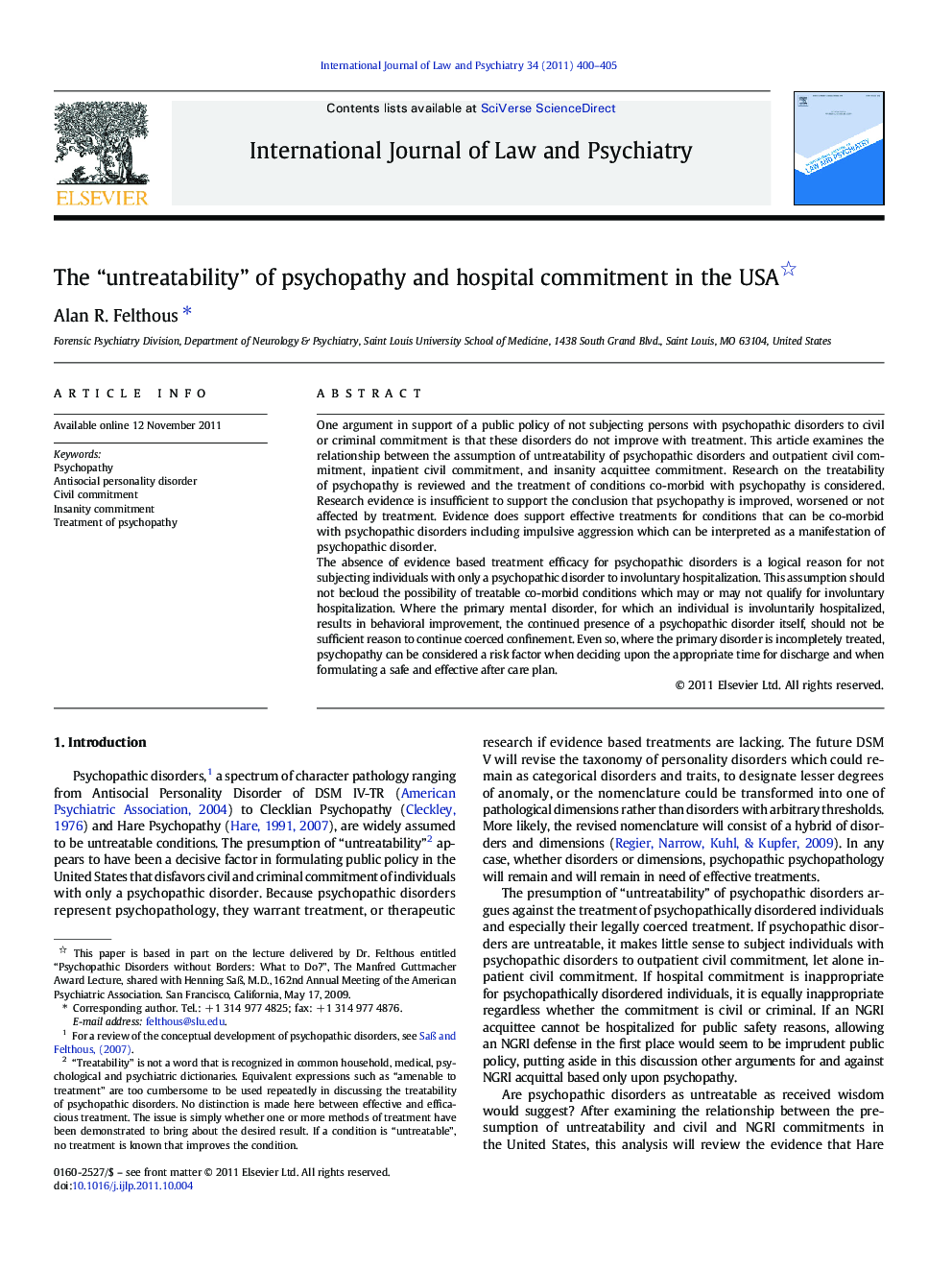| Article ID | Journal | Published Year | Pages | File Type |
|---|---|---|---|---|
| 101078 | International Journal of Law and Psychiatry | 2011 | 6 Pages |
One argument in support of a public policy of not subjecting persons with psychopathic disorders to civil or criminal commitment is that these disorders do not improve with treatment. This article examines the relationship between the assumption of untreatability of psychopathic disorders and outpatient civil commitment, inpatient civil commitment, and insanity acquittee commitment. Research on the treatability of psychopathy is reviewed and the treatment of conditions co-morbid with psychopathy is considered. Research evidence is insufficient to support the conclusion that psychopathy is improved, worsened or not affected by treatment. Evidence does support effective treatments for conditions that can be co-morbid with psychopathic disorders including impulsive aggression which can be interpreted as a manifestation of psychopathic disorder.The absence of evidence based treatment efficacy for psychopathic disorders is a logical reason for not subjecting individuals with only a psychopathic disorder to involuntary hospitalization. This assumption should not becloud the possibility of treatable co-morbid conditions which may or may not qualify for involuntary hospitalization. Where the primary mental disorder, for which an individual is involuntarily hospitalized, results in behavioral improvement, the continued presence of a psychopathic disorder itself, should not be sufficient reason to continue coerced confinement. Even so, where the primary disorder is incompletely treated, psychopathy can be considered a risk factor when deciding upon the appropriate time for discharge and when formulating a safe and effective after care plan.
